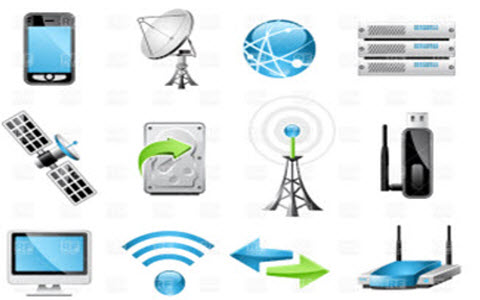Mobile and wireless technologies have become an integral part of our daily lives, and they have transformed the way we interact with each other and the world around us. From smartphones and tablets to wearable devices and the Internet of Things (IoT), mobile and wireless technologies have made it easier for us to stay connected and access information on the go.
But the impact of mobile and wireless technologies goes beyond just personal use. They have also had a significant impact on business operations and the economy as a whole. In this blog post, we will explore some of the ways in which mobile and wireless technologies have transformed business and the economy.
Efficiency and Productivity:
Mobile and wireless technologies have made it easier for businesses to be more efficient and productive. With mobile devices and wireless networks, employees can work from anywhere, anytime, without being tied to a physical office. This has enabled organizations to embrace flexible work arrangements, such as telecommuting and remote work, which can lead to increased productivity and reduced costs.
In addition, mobile and wireless technologies have made it easier for businesses to collaborate and communicate. Cloud-based services and collaboration tools enable teams to work together seamlessly, regardless of their location. Video conferencing, instant messaging, and other communication tools make it easier for employees to stay connected and share information in real-time.
New Business Models:
Mobile and wireless technologies have also enabled new business models to emerge. For example, the rise of mobile apps has created new opportunities for businesses to reach customers and generate revenue. Companies can now develop and distribute apps that allow customers to access their products and services from anywhere, anytime. This has disrupted traditional business models, enabling new players to enter the market and challenge established players.
Similarly, the Internet of Things (IoT) has opened up new possibilities for businesses to collect and analyze data in real-time. By connecting devices and sensors to the internet, businesses can gain insights into their operations and improve efficiency. This can lead to cost savings, increased productivity, and new revenue streams.
Economic Impact:
The impact of mobile and wireless technologies on the economy is significant. According to a report by the GSMA, the global mobile industry contributed $4.1 trillion to the economy in 2018, equivalent to 4.7% of global GDP. The report also estimates that the mobile industry will contribute $4.9 trillion to the global economy by 2023.
Mobile and wireless technologies have also created new jobs and industries. The rise of mobile apps and the gig economy has led to the creation of new job opportunities, such as app developers, digital marketers, and freelance workers. In addition, the development and deployment of wireless networks and infrastructure have created new industries, such as mobile network operators and equipment manufacturers.
Conclusion:
Mobile and wireless technologies have transformed the way we live and work, enabling us to be more connected and productive than ever before. They have also had a significant impact on business operations and the economy as a whole, enabling new business models to emerge and creating new jobs and industries. As mobile and wireless technologies continue to evolve, we can expect to see even more exciting developments in the years to come.





